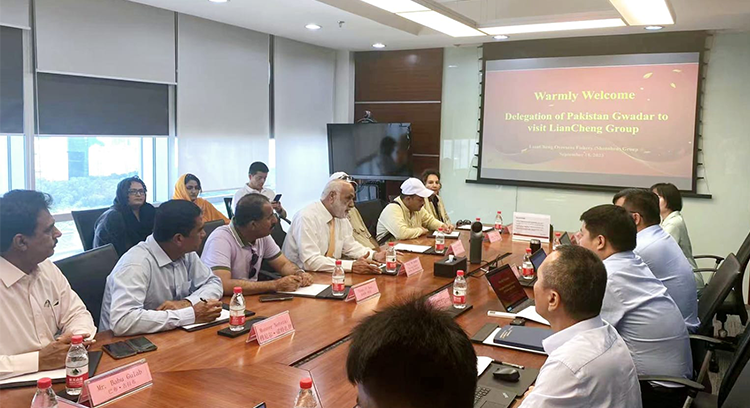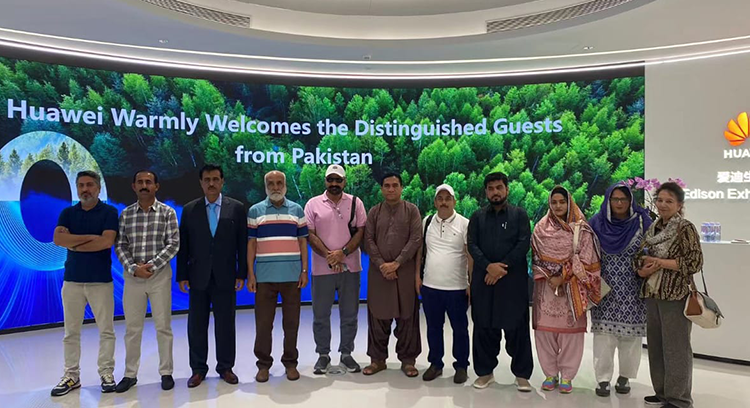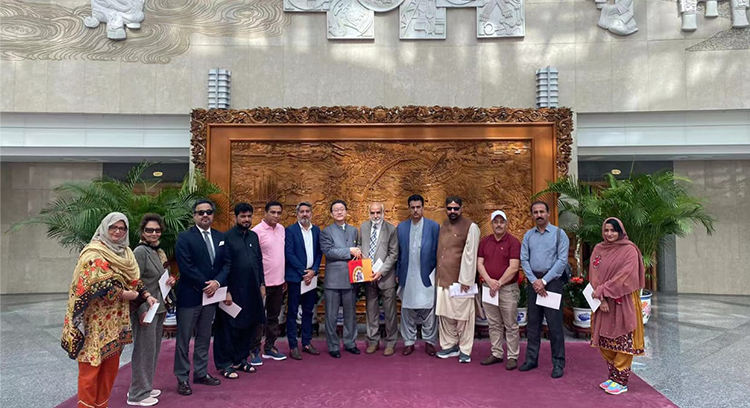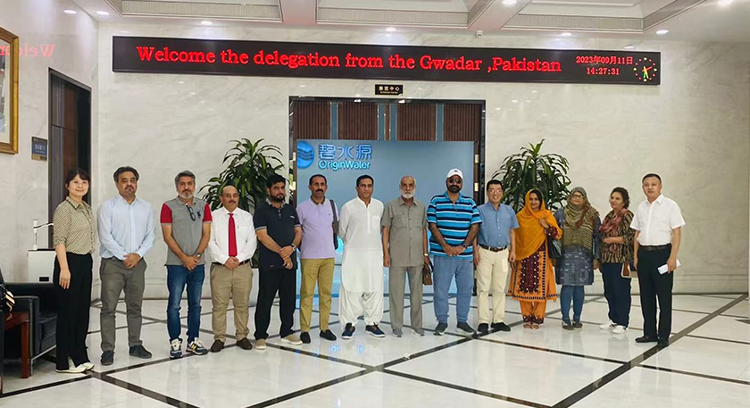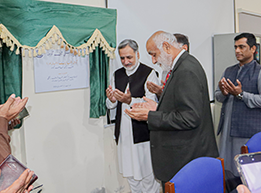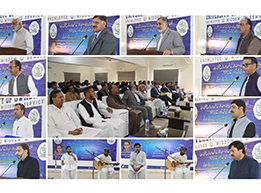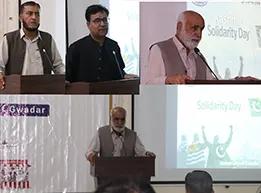10-member from Gwadar-Pakistan delegation visits to China.
- 23 Sep, 2023
A 10-member Gwadar Pakistani delegation led by Prof. Dr. Abdul Razzaq Sabir (TI), Vice Chancellor of the University of Gwadar, visited China. The delegation made a study visit to Beijing city visited various educational and commercial centers, and received briefings for first-hand information. The delegation aims to further promote the academic and cultural exchange of people between Pakistan and China.
On the special invitation of the Chinese Ministry of Foreign Affairs, a delegation including senior academics, researchers and businessmen, administrative officers left for China on September 10 for a ten-day visit.
The delegation includes Prof. Dr. Abdul Razzaq Sabir (TI), Vice Chancellor of the University of Gwadar; Babu Ghulab Baloch Eminent politician and Ex-Mayor Gwadar, Dr. Shahina Shaoukat Principal GDA PHSS, Gwadar, Munir Ahmed Nodezai, Director Education Balochistan, Muhammad Sharif, Mayor Gwadar, Sham ul Haq President Gwadar Chamber of Commerce, Advocate Mehraj Ali President Bar Association Gwadar, Ms. Sarwat Ashfaq Principal APS Gwadar, Ms. Parveen Principal Pak China Friendship School Gwadar, Mr. Abdul Manan Assistant Director Gwadar Development Authority.
The delegates met Mr. Liu Jinsong, Director General of the Asian Affairs Department of the Ministry of Foreign Affairs of China in Beijing.
Liu welcomed the worthy vice chancellor Prof. Dr. Abdul Razzaq Sabir and his delegation to China and interacted with each member of the delegation. Mr Liu emphasized that over the past decade since the launch of the China-Pakistan Economic Corridor (CPEC), with the joint efforts of both China and Pakistan, significant infrastructure projects in Gwadar, including ports, airports, roads, bridges, hospitals, and desalination plant have been completed and put into operation, bringing tangible benefits to the local people.
Liu pointed out that China attaches great importance to the well-being and economic development of Balochistan and Gwadar region in Pakistan and continues to invest, demonstrating that China's friendly policy towards Pakistan is oriented towards all ethnic groups in Pakistan, that the CPEC projects have benefited all regions, tribes and social strata of the country, and that the China-Pakistan Friendship and Cooperation have a very strong inclusiveness and universally beneficial nature
Vice Chancellor Prof. Dr. Abdul Razzaq Sabir and the delegation highly praised China's development achievements and the China-Pakistan relationship. They expressed their deep appreciation for witnessing China's people being hardworking, humble, disciplined, brave, and kind. They also acknowledged China's unparalleled modernization achievements and admired President Xi Jinping's wise leadership and the proposed neighborhood diplomacy concept of amity, sincerity, mutual benefit, and inclusiveness. Pakistan takes pride in being a friend of China and sees China's achievements as its own. Pakistan's friendship with China transcends party lines, encompasses the entire government, and is a consensus across society. Pakistan was one of the earliest countries to respond to the Belt and Road Initiative (BRI). Over the past decade, the construction of the CPEC has continued unabated, injecting strong impetus into the development of various regions in Pakistan, including Balochistan province and Gwadar region. The people of Gwadar deeply feel the speed, effectiveness, inclusiveness, and universal benefits of corridor cooperation and firmly believe that people from all over Pakistan will continue to benefit from the friendly cooperation between the two countries. They look forward to further enhancing people-to-people exchanges and practical cooperation between the two countries, ensuring that the China-Pakistan friendship continues to grow and pass down from generation to generation.
Discussions with Chinese academics, scholars, and government officials identified opportunities for increased cooperation in diverse areas including trade, technology, and infrastructure development. The members of the delegation expressed their desire to promote educational cooperation, facilitate the exchange of knowledge, and enhance mutual understanding and bilateral cooperation in the field of education and beyond.


